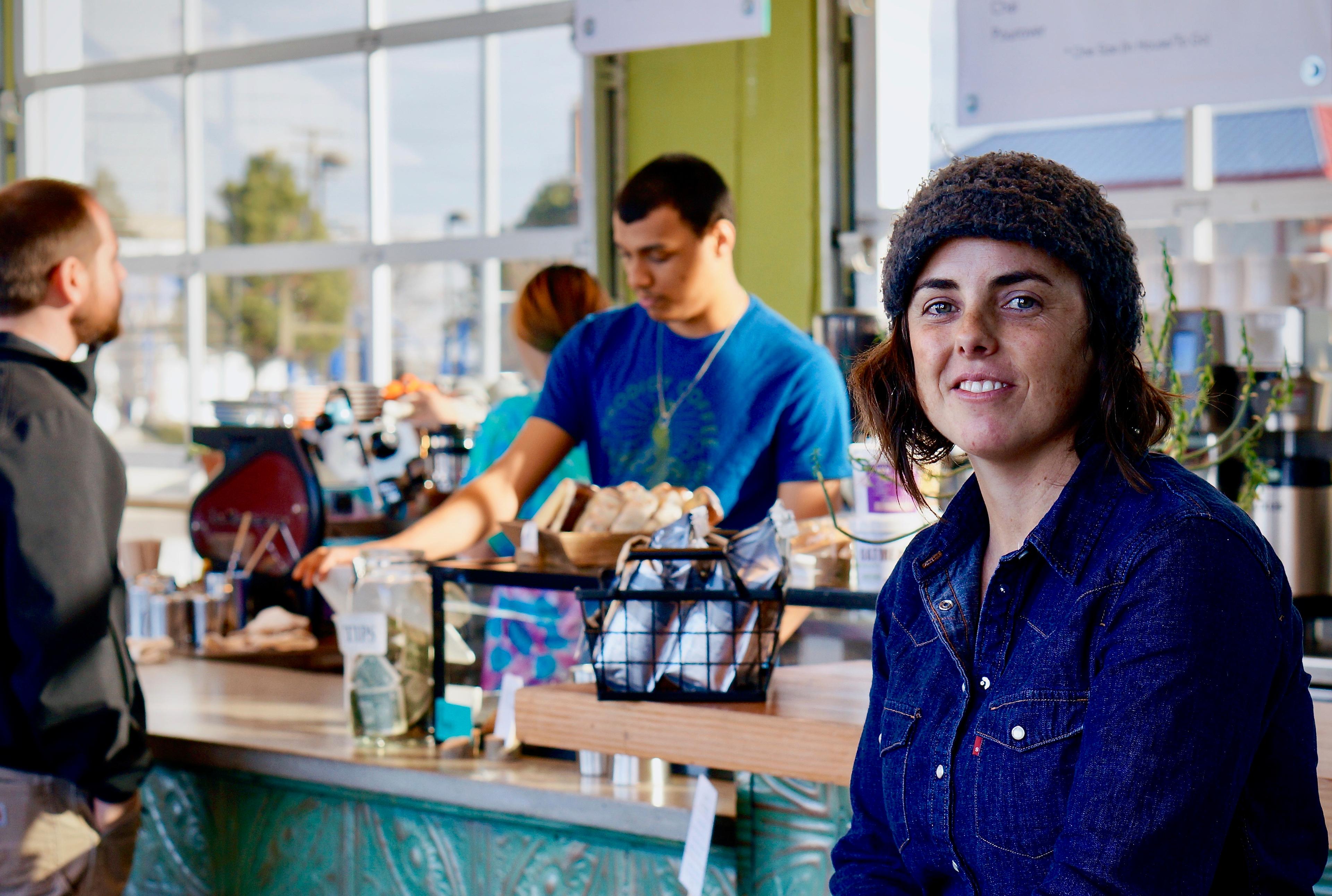
Angel Martinez never imagined she’d be a barista, making lattes that cost three to four bucks.
“To me, when I thought of a coffee shop, I thought of it being this high-class place where people come in and drink their little fancy drinks,” Martinez says as she takes a break from her shift at Prodigy Coffeehouse in the Globeville-Elyria-Swansea neighborhood.
The 19-year-old came to Prodigy by recommendation of her diversion officer. Martinez says the job has been a good experience: “I don't think the world would be as clear to me as it is today [without Prodigy]."
Prodigy Coffeehouse is a nonprofit with the mission to provide young people in northeast Denver work experience. Ranging from 18- to 24-years-old, they spend about a year as paid apprentices, learning, not just how to make a macchiato, but how to connect with customers and coworkers.

“The word prodigy [is] a person endowed with exceptional abilities,” co-founder and executive director Stephanie Frances tells Colorado Matters. “And we believe that there are those people that exist in this community, especially those that are disengaged, that are prodigious.”
Frances says many of the apprentices have struggled with work in the past and some have dropped out of school. Frankie Rodarte, 21, says she didn't have to hand in a resume when she applied.
“They didn't set too many limitations,” Rodarte says. “They just accepted us for who we are.”

Craft coffee shops are a particularly fraught concept right now, after ink! Coffee put up a sign in Denver’s historically African-American Five Points neighborhood that bragged about “happily gentrifying” the area. Frances, who bought a house near Prodigy about two years ago, says she was initially met with skepticism from the community.
“We went to community members and said, ‘Hey, we’re excited about this. What do you think about the model?’” Frances says. “And legitimately so, they said, ‘Who the hell are you and coffee is one of the first indicators of gentrification.’”
More Interview Highlights:
Rodarte on the change she's seen in her northeast Denver neighborhood:
“I grew up here. From having my neighbors move away, to new neighbors, to new businesses and old businesses getting shut down, it really has been a drastic change. You never know, you might wake up one day, the rent might be raised or you just don't belong anymore. It's hard to be able to strive and survive when you feel incompetent. Not everyone gets handed an opportunity... we feel as if everyone is leaving us [behind]."

Frances on how she hopes Prodigy can affect gentrification in the area:
"Gentrification is enormous and complex. It is a deeply dividing experience of our city right now. This is something that cannot be done by just one sector of our community. [This coffee shop won't solve gentrification.] What I'm so excited about in this model is that we're thinking about how we're developing this city on the business side of things. So when you think of having businesses in these neighborhoods that have been disenfranchised, my hopefulness is that this city needs more [social enterprise] spaces. My call is, as we're developing, we're redefining the city with every development decision we make, so businesses like Prodigy need to be an intentional part of our development."
Martinez on how Prodigy has changed her outlook on life:
"I was kind of a critical person before. I wasn't as nice as I am today. I didn't really have the communication skills... but I definitely learned that sometimes you gotta let your guard down, listen to what people are telling you and take it into consideration. And it's definitely been helpful."

Related:








